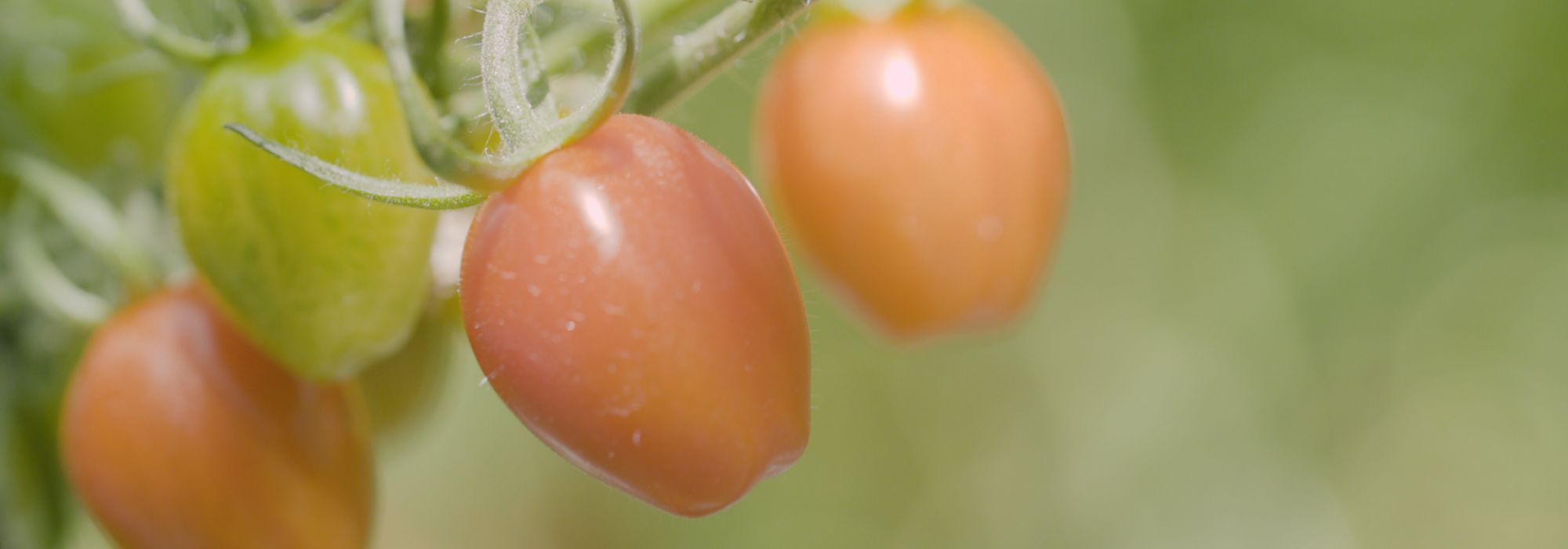Produce is a result of its environment - how it’s grown, reared or manufactured is the difference between an average product and an outstanding one.
As official hospitality providers at Royal Ascot, Sodexo are proud to source their ingredients from local, often artisanal suppliers that not only taste AMAZING, but represent the values of this great British institution. One such example of this is Westland Nurseries.
Located in the idyllic Vale of Evesham, Westland Nurseries rear micro-greens, tomatoes and other tasty plant life in their glasshouses. And, it’s Westland’s tomatoes that make a star appearance on Royal Ascot’s menu this year, within the delicious Heritage tomato and burrata salad, tomato essence sorbet, tomato consommé and Kalamata olive.
So, we spoke to Westland Nurseries about what makes a perfect tomato, their (futuristic) farming methods and their own brief history:
How was Westland Nurseries established?
Westland Nurseries was started in the late 1940’s by current owner Martin Boers’ father who came over to England from Holland after WWII. Growing a range of protected crops, both traditional and unusual, this was the start of Westland’s farming-practice.
In the mid-80s Westlands was one of the leading plant raisers in the UK, growing huge numbers of vegetable and salad plants, as well as baby leaf in off-season periods (this was a new crop and quite pioneering at the time). In the early 2000s the concept of the micro-leaf was born and now we have added many more speciality lines to our ranges, making Westlands the ‘go to’ supplier of particular leaves.
What are your tomatoes grown in and how does this impact on the produce ?
Westlands tomatoes are hydroponic - meaning the plants’ roots sit in a nutrient rich solution rather than soil. The solution gives them all the vitamins and minerals they need to produce great tasting tomatoes from February all the way through to November.
How do you minimize waste in your tomato-growing at Westland Nurseries ?
Waste is minimised by being very precise about the number of fruit on the plant. We may remove some fruit at the flower stage to ensure that, as far as possible, all of the fruit on the plant will mature to a size and colour that will meet our customers’ requirements.
Do you grow a variety of tomatoes ?
We grow many different types of tomatoes, roughly 30 different varieties, and the types range from San Marzano; to Coeur de Boeuf; to Tigerella Rounds; to plums; to large vine tomatoes and sweet baby plums. The baby plum is the smallest variety we grow, with tomatoes typically weighing 20g each, and the Coeur de Boeuf (or beef steak as they’re colloquially known) are the largest, weighing nearly 1kg each!
What makes Westland Nurseries’ tomatoes stand out from the crowd ?
The range of colour, size and shape is the obvious stand out difference - if it’s round and red it’s not coming in! The fact that we grow our tomatoes hydroponically also means we have great control of the flavour and can influence the tomatoes’ sweetness, acidity and all round tomatoey greatness!
Tell us the story of the life of a Westland Nurseries tomato.
Planted in early December in a clean glasshouse, we keep them nice and warm (it depends how sunny it is as to how warm we keep the greenhouse - it all about balance). Plants are trained every week around a string that keeps them tall and straight. By the middle of the summer we hope to have one truss of flowers develop, one truss will be pollinated by the bees and we also hope to pick one truss of fruit every week. By the end of the system the vines will be between 25 and 40 feet long!
How long have you been working with Sodexo?
We’ve been working with Reynolds (Sodexo’s supplier) for nearly 15 years, delivering amazing, speciality, fresh produce to them as a wholesaler and distributer of our delicious toms.
*

